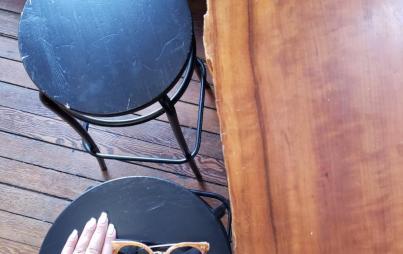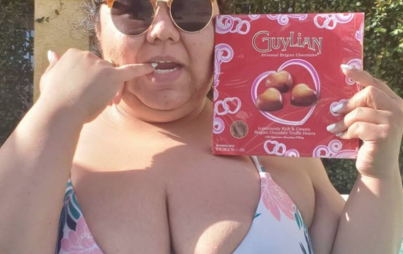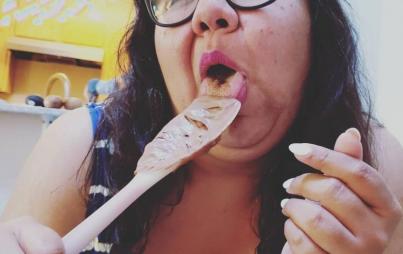
image credit: Virgie Tovar via Instagram
It’s official.
The word “diet” is on its way out.
In its stead has arisen a flurry of new (and some upcycled) descriptors: cleanse, detox, anything that’s comprised of a non-descript holistic health noun and a number, and the one that keeps coming up again and again — programs that shill “lifestyle” shift.
I’m no stranger to the concept of “lifestyle changes.” I remember being a dieter and bandying that phrase around myself. It made me feel like I was above short-term weight-loss. No, I wasn’t about some flash-in-the-pan gimmick. I was ready for real, til-death-do-us-part change, girl. Back then, I thought I wanted an LTR with portion control. The appeal of “lifestyle change” for me was the idea that after a while dieting would stop being the miserable, miserable work that it was because new eating habits would have seamlessly become incorporated into other daily “optimizing” activity. Carefully apportioning out how much butter I had would be just like brushing my teeth, or always putting my car keys in the same place or putting quarterly reminders into my calendar to buy new jasmine-scented body wash.
Unfortunately, that’s not how that worked out.
The labor of controlling how you eat never stops feeling like labor. It’s true that habituation can make physical actions feel more effortless over time, but eating isn’t just an action — it’s a human instinct.
“Lifestyle” is invoked to create a sense of permanence — with the added benefit of deniability. But at the end of the day if any program, ideology or set of behaviors has certain characteristics it’s a diet.
You Might Also Like: 7 Reasons Weight Watchers Is The Actual Worst (From A WW Veteran)
Here are 8 clues that your lifestyle is actually a diet:
1. It encourages categorizing food in binary ways, such as superior and inferior, healthy and unhealthy, good and bad, clean and not clean
2. It involves breaking food into quantifiable units (like calories and grams)
3. It positions weight gain as a sign that you’re not doing something right
4. The people who represent the ideal for this lifestyle are all thin
5. Among the many benefits of this lifestyle, weight-loss is an important one
6. If it led to a better, happier life but it involved gaining weight you would no longer be interested
7. You feel shame when you’ve eaten certain things and pride when you’ve eaten other things
8. When you envision yourself 5 or 10 years into this lifestyle, your body looks radically different
If you answered yes to any of these questions you're on a diet.
Why is it important to call a diet a diet? Because 1. The truth is actually important and 2. Misleading language only benefits the person peddling it.
With the rise of fat visibility, it's important to recognize that the word diet will increasingly retreat from our vocabulary, replaced with dynamic language that obscures what’s really happening. This process of using obscuring language in order to mask the truth about something is harmful. In fact, it’s gaslighting. Many people — especially women — are already gaslit all the time: at work, in relationships and by faux inspirational pop-up ads that we have to deal with while we’re just trying to read about how to get cuter nails.
Calling a weight-loss effort something else allows the dieter to rationalize weight-control behavior as a beneficial and natural part of everyday life. And this tactic gaslights fat people who are being told that we’re not being thrown under the bus by dieters and companies peddling thinly veiled fatphobic ideas, language and products.
We can’t keep running from the fact that fatphobia is the problem — not fat people.
Dieting is about running away from this truth, rather than facing the fact that we are all harmed by this injustice. It’s important to be honest about what practices we’re committed to having in our lives so we can examine them responsibly – for our sake and for everyone’s sake.
So the next time you hear someone talking about “lifestyle” changes take a look at the eight clues and feel free to set the record straight.








